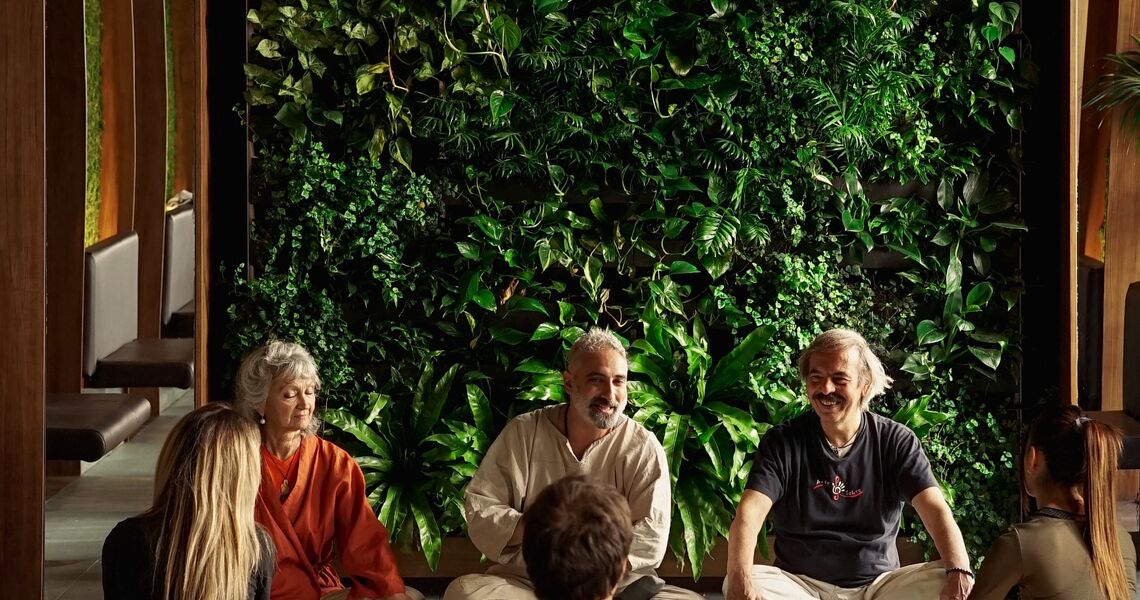
All our daily actions take place within natural or artificial spaces and places. Physical environments are the stages of our lives, and we cannot ignore them. We often travel the same routes every day, to go to work or school, regardless of their characteristics and peculiarities.
With some places we establish true forms of emotional attachment that affect us throughout our lives, such as the homes of our childhood or the spaces where we played as children.
Other environments, on the other hand, generate feelings of fear and discomfort in us, in such a way as to push us to avoid them at all costs.
Since our origins, we have shaped and modified the environments in which we have lived, with both positive and negative effects, both for ourselves and for other living beings and for the environment.
What at first glance seems obvious, is not always part of our awareness: it is also the created environments that influence our lives and contribute to our well-being or discomfort.
In this article:
Human beings and the environment have always influenced each other and are inextricably linked. Our ancestors already knew very well that they depended on natural environments and on the presence or absence of resources and safe shelters to ensure their survival. Natural selection favoured individuals who most readily learned to recognize the signs that indicated the presence of food and the possibilities of good shelter.
We are biological beings that belong to Nature and we have an evolutionary history that has seen us for many years in close contact with the natural environments (wilderness). Even today we are perfectly adapted to these environments. Numerous studies have shown that the lack of direct and sensory contact with natural spaces, especially in children, leads to a whole series of negative consequences and can be the cause of many ailments suffered by urbanized children, starting for example with attention deficit disorder and hyperactivity.
In this regard, the book "The last child in the woods" written by the American journalist Richard Louv in 2005 is very interesting. The author has effectively expressed the need to bring children into contact with Nature, to preserve them from what he has called the "nature deficit disorder"
An increasing number of scientific studies are showing that the benefits of contact with Nature for the human being are multiple and very significant. Immersing yourself in natural environments on a cognitive level accelerates the process of attention restoration after a mental fatigue and makes thinking clearer. On an emotional level, it reduces stress and promotes our recovery, for example. It seems that Nature also stimulates our creativity and productivity.
Today many of us do not have many possibilities to satisfy daily contact with natural environments, given that many urban centres are rather lacking or even devoid of any form of Nature. Fortunately, in recent times, and especially after the recent experiences related to the lockdown, more and more people recognize the need to let Nature also enter the artificial environments, internal and external, of our cities.
Read the article on new green workspaces.
We are helped by the so-called "nature-based solutions" which refer to the management and sustainable use of Nature to address socio-environmental challenges, such as climate change and its consequences, safe food and people's health. Nature-based solutions concern, for example, the insertion of vegetation inside and outside buildings, such as intensive and extensive green roofs, but also green facades and living walls, real vertical gardens that are seen more and more often in our cities.
Would you like to see an example of a "nature-based-solutions" project?
Here you can see our contribution to the city of Turin.
A discipline that "attempts to translate the affinity of the human being with Nature - known as BIOPHILIA - in the design of artificial environments" (Kellert, 2008) is called BIOPHILIC DESIGN. The effective application of biophilic design protocols brings with it multiple physical and psychological health benefits, but also far-reaching economic, social and environmental benefits.
In reference to the physical benefits, biophilic environments have a strong positive impact on our cardiovascular system, on the autonomic nervous system, on the immune system and on our metabolic system.
From a psychological point of view, they positively influence our emotions, cognition and adaptations.
The benefits for the environment increase significantly when combined with sustainability strategies. As for the social benefits, Biophilic Design favours the creation of spaces that allow a good level of privacy, but at the same time also a positive interaction and inclusion of people (especially the elderly, the frail and children). Finally, the economic benefits, such as the reduction of energy costs or the increase in the value of properties, are convincing for applying the discipline of Biophilic Design.
Our lives today and our perception of physical spaces can be improved with the help of ARCHITECTURE and DESIGN capable of creating positive experiences in the name of people's health and psycho-physical and psycho-social well-being.
In this regard, the words attributed to the architect Richard Rogers, famous above all for the Georges Pompidou Centre project in Paris created together with Renzo Piano, seem very current (and often forgotten by those involved in the design process):
"You can't think of architecture without thinking of people."
- - -
Bettina Bolten, Biophilic design consultant




















